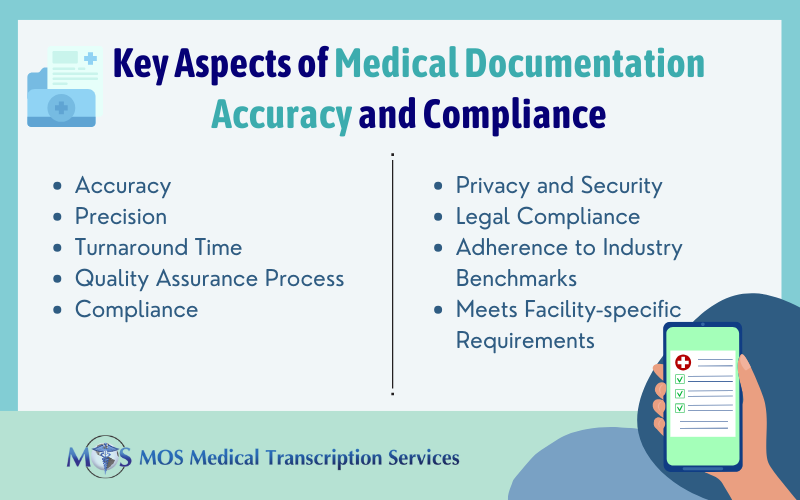
Time and the ability to communicate are valuable aspects in the physician-patient relationship. Physicians struggle to cope with time constraints as they are constantly under pressure to provide a broad range of preventive services, follow guidelines, and deliver patient-centered care. Medical transcription outsourcing helps with EHR documentation, reducing stress and allowing physicians to spend more time with their patients. When it comes to communication, text messaging is a practical option that allows both physicians and patients to reach out to each other and save time. However, text messaging in healthcare has both pros and cons.
Benefits of Text Messaging Patients
- Improves communication: Text messaging improves communication between physicians and patients. Physicians can monitor patient health effectively. For instance, patients can send their blood pressure results and glucose readings electronically allowing the physician to understand their health status and respond to these readings instantly. In a January 2018 Healthcare IT News article, a hospitalist who treats patients addicted to opioids explains how a secure text messaging platform allows him to remotely manage his patient population to ensure their care and recovery. The physician often engages with patients via text messaging to discuss doses, their treatment and all-around wellness during the sensitive and crucial recovery period. Secure messaging gives patients direct access to their physician. They can text the physician if they are not feeling well or if they have a question. Text-messaging is useful for weight management, diabetes management, medication management, pain management and wellness.
- Reduces phone calls: Text messaging can reduce the number of phone calls that practices make and receive each day. In general, physicians, nurses and receptionists find the repeated interruptions of phone calls quite frustrating. The buzzing rings can also affect workflow. In addition to outgoing phone calls, practices have to handle calls from patients seeking to make, cancel or change an appointment, get directions to the practice, and other concerns. Test messaging can replace phone calls for simple tasks such as sending appointment reminders, alerting patients that their test results are ready, etc.
- Convenient, time saving option: Text messages only take a few seconds to type and send. Phone calls may be missed and can end up in a voice message that may not be heard. Again, compared to phone calls, text conversations take just a short time and convey all the necessary information in a few seconds. Physicians can even type text messages while they are doing other tasks, including helping patients who arrive at the office while they wait for a reply.
- Improves the patient experience: Using text messages to communicate with patients would give practice staff more time for preparing for upcoming appointments, assisting patients in the office, and other important matters. Texting allows practices to improve the patient experience. Missed appointments can pose a risk to the patient’s health. Sending appointment reminders via SMS can reduce no-shows.
According to a recent Forbes article, many pharmacies are looking into the feasibility of using text messages to send notifications to patients. Younger patients are likely more responsive to texts than calls. With SMS, patients get a written record of the pharmacy’s information, which is more efficient that taking notes off a voicemail.
Snags of Text Messaging in Healthcare
While text messages are an effective means of communicating with patients, this option also comes with certain risks.
- Security risks: As SMS lacks encryption, it can compromise patient confidentiality. As a recent Forbes article points out, anyone who intercepts the data can read it. Automated texts that pharmacies send are not encrypted and the Centers for Disease Control and Prevention (CMS) prohibit texting of orders by physicians or other healthcare providers regardless of the platform. Sending any PHI in a text message (without consent) constitutes a HIPAA violation. While a voice mail gets deleted after a specific period, many text messages remain on a device. If the phone is hacked, compromised or discarded, third parties would be able to access the PHI. The Joint Commission bans physicians from using traditional SMS for any communication that contains ePHI data or includes an order for a patient to any healthcare provider. Practices can end up paying hefty HIPAA penalties for not adequately protecting personal health information (PHI).
- Risks of misinterpretation: Similar to emails, electronic messages come with the risk of miscommunication. The recipient and sender may not be clear of their expectations, leading to confusion and concern. If patients are distraught or angry when sending an email or SMS, their emotions would be reflected in their message and physicians may find it difficult to respond to it. Also, as with email, an immediate response is important. These challenges make electronic patient messages a major task to complete for busy physicians.
- Onboarding: According to a www.kevinmd.com report, getting patient consent to receiving messages is a key challenge. Also, to initiate the messaging campaign, text message sent should always be an ‘opt-in’ message that the patient has to reply to.
The pros of text messages outweigh the cons. Physicians can use text messages and ensure compliance by giving patients a secure option and obtain their written consent to text. Physicians should take proper steps to ensure the security of the data they send. If communicating PHI with other health care providers, they should use a secure channel. Secure apps can also be used to send push notifications and encrypted messages.
The bottom line: never transfer PHI through unsafe or unprotected means of communication. When it comes to EHR documentation, choose a HIPAA-compliant medical transcription company.


